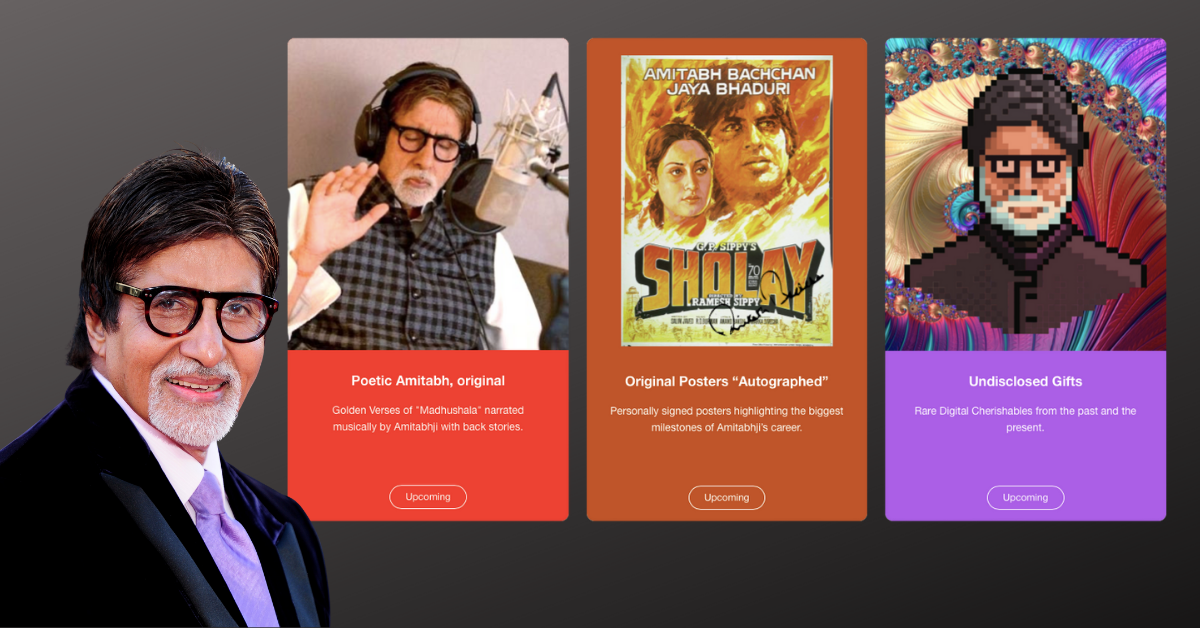Demand to clarify legality of NFTs in India grows
Non-fungible tokens (NFTs) have recently gained enormous traction in India. While the COVID-19 pandemic adversely impacted the art markets in India, NFTs bring hope to the artists and creators looking at the digital art markets to overcome traditional market barriers.
Digital platforms can provide for artists to access a broader market base, gain better reach, and receive good value for their work. Furthermore, artists have the flexibility to set their royalty fee for every subsequent transaction of their work in the secondary market.
Rise in popularity of NFTs
NFTs have emerged as a talking point across the Indian IP sphere and beyond. On Twitter, conversations around NFTs are growing in India, with their volume increasing by 43% between April and June 2021 on the platform. In sum, India has generated over 600,000 tweets on NFTs over the past year.
NFTs are essentially digital tokens stored on the blockchain. Since blockchain is transparent, it helps establish the ownership of digital tokens and the underlying asset. Several IP assets with unique copyrights, like paintings, photographs, GIFs, memes, videos, songs, virtual avatars, video game skins, and sports highlights, can be sold in the tokenised form.
No two NFTs can have an identical blockchain, nullifying imitation and copies of the original art and minimising possible disputes. Overall, NFTs provide a safe place for artists to store their art and monetise it in a secure environment, marking a welcome change for the industry.
Within a brief period, digital marketplaces dealing in NFTs have cropped up in India. WazirX was the first NFT marketplace in India, and according to a report by The Economic Times, WazirX sold over 160 pieces of digital art within ajust one month after its NFT launch in the marketplace. Subsequently, many players have expanded to offer their services across India. With celebrities investing and minting their NFTs, the popularity of digital coins has increased rapidly.

NFTs in popular culture
Amitabh Bachchan, a popular Bollywood actor, has announced plans to launch his NFT collection of unique artworks themed on his life and career, with the NFTs available for bidding in an auction. Bachchan’s NFTs will include original movie posters signed by him, cryptopunk-style digital artworks featuring him, and his narration of his father’s – a famous poet – book and poems.
On similar lines, Sunny Leone, a popular Bollywood actress, has launched her collection of NFTs with a membership access pass to exclusive, unblocked content and other perks.
For cricket fans, ‘Cricket Crazy’ is a platform that offers iconic moments of the sport in the form of NFTs that can serve as a memoir or collectable for fans.

IP rights and NFTs
The ownership and commercialisation of IP rights in NFTs is considered as a complicated area. The owner of the NFT may not necessarily have rights over the underlying IP rights, and much would depend on the contract between the parties.
For the NFT owner to exploit the creation of artwork in any manner or reproduce, they will need express permission, license, or assignment from the author. Otherwise, the NFT they own would be more like a right to use the artwork for personal use, collectable, or sale in the secondary market.
The legal position in India
As of October 2021, there are no laws to regulate the trading of NFTs in India. However, a bill – the Banning of Cryptocurrency & Regulation of Official Digital Currency Bill – was drafted in 2019. It was to be tabled in the monsoon session of parliament in 2021, which the government later withheld to discuss the proposition further.
As per the draft bill,any direct or indirect dealings in digital currency would attract criminal penalties, including imprisonment of up to 10 years.
Apart from the said bill,the Reserve Bank of India (RBI) issued a notice in 2018, which sought to prohibit dealing in virtual currencies.
Aggrieved by the said order, various entities such as the Internet and Mobile Association of India and few companies which run online crypto-assets exchange platforms, filed petitions (Internet and Mobile Association of India vs Reserve Bank of India AIR 2021 SC 2720).
After examining different aspects in India and internationally, a three-judge bench of the Apex Court set aside the notice on the ground of proportionality. The Supreme Court noted that in the absence of any legislative ban on the buying or selling cryptocurrencies, the RBI could not impose restrictions on trading in these currencies. The court felt such limits would interfere with the fundamental right of citizens to carry out any trade that is deemed legitimate under the law.
The future of NFTs in India
Given the increasing popularity of cryptocurrencies and NFTs in India, there is an urgent need for clear regulations. There has been speculation from numerous economic and financial experts that the recent hype in NFTs is unsustainable. There are also further concerns related to higher carbon footprints caused by the use of ethernet in NFT transactions.
NFT is an evolving area, and only time will tell whether it is here to stay. For now, the NFT revolution seems exciting and promising, particularly for artists to monetise their creations and protect them from endless reproducibility in the digital world.



